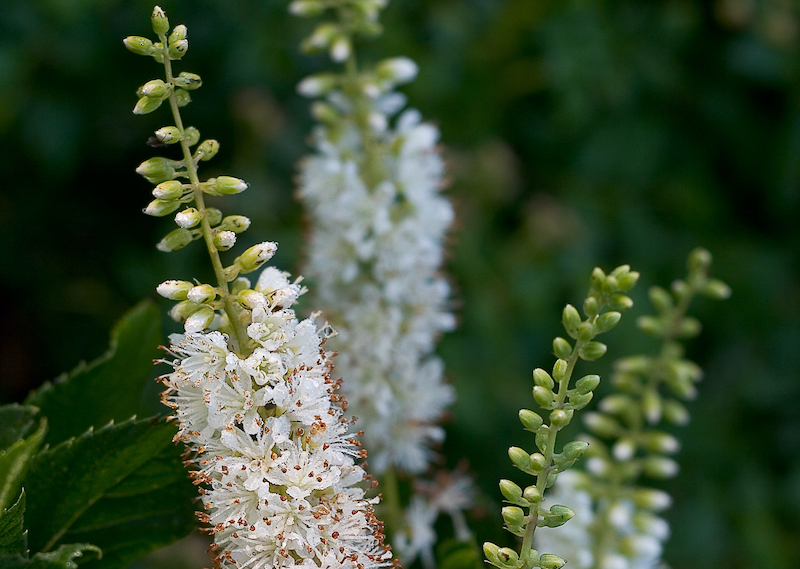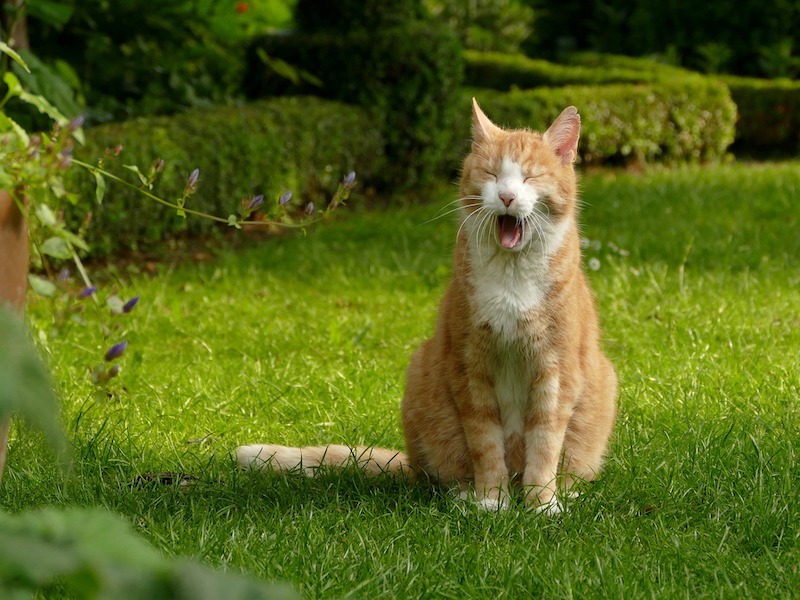Summersweet (Clethra alnifolia) is an attractive shrub for our gardens, and not just because of its sweet late-summer blooms. This shrub has no known toxicity to humans, pets, or horses, making it an ideal addition to your garden. Because it is able to bloom in shadier spots, it may even be a great substitute for less pet- and human-friendly shade bloomers like Hydrangea. Despite its lack of toxicity, it is still deer-resistant.

Is Summersweet Poisonous to Children?
You can rest assured when allowing your little ones to experience the sights and smells of your garden that Summersweet will not cause them harm. There are no known toxicities found in the leaves, stems, flowers, or roots of this shrub. In the late summer, its fragrant blooms can be sniffed and enjoyed to no end. You can even plant this moisture-loving shrub close to your patio or deck, allowing you to welcome in fall with one last round of spicy-sweet blooms.
Is Summersweet Poisonous to Dogs?
While any plant can cause an upset stomach when eaten in its entirety by Fido, there are no known toxicities related to Summersweet. In fact, because of its safety, Summersweet can be used as a barrier hedge when trying to keep pets away from more toxic plants.

Is Summersweet Poisonous to Cats?
Like dogs, cats are welcome to roam around and nibble upon Summersweet if they so desire without any major health complications. Summersweet is non-toxic to cats. Summersweet is an excellent non-toxic shrub, especially because it can be planted in many different lighting and soil conditions.

Is Summersweet Poisonous to Other Animals?
Summersweet is considered a non-toxic plant when it comes to livestock and wildlife. Despite being non-toxic, Summersweet is still considered a deer-resistant shrub, depending on the local deer population and the availability of other food sources. In fact, the wildlife that Summersweet does attract seems to be limited to pollinators like bees and butterflies, as well as hummingbirds. Other birds and small animals can be observed feeding on Summersweet seeds after their flowers have finished blooming.
Symptoms Of Summersweet Poisoning
While Summersweet is considered non-toxic, anything consumed in large quantities can cause issues like upset stomach, nausea, diarrhea, and vomiting. Always check with your doctor or veterinarian for guidance if you suspect Summersweet poisoning.
Here are some common symptoms to look out for:
- Nausea
- Vomiting
- Diarrhea
- Abdominal Pain
Preventing Summersweet Poisoning
Despite being non-toxic, you may still want to keep pets, children, and other animals away from Summersweet for aesthetic purposes. To prevent herbivory and damage, you can put a physical barrier like a fence around your shrubs. Commercially available products like pet and deer deterrents can often be found at garden centers or online.
Summersweet in itself can be used as a physical barrier to keep curious pets and wildlife away from more harmful or treasured plants as well. When planted as a hedge, you may be able to keep deer away from their more preferred plants, such as hostas or hydrangeas.
Pet Poison Helpline
If something were to happen to your furry friend, and you suspect that they are suffering from Summersweet poisoning, there is a poison control hotline to call for 24/7 vet advice. It is called the Pet Poison Hotline, and their phone number is (855) 764-7661.
Sources: "Is Clethra alnifolia toxic to dogs?" Lady Bird Johnson Wildflower Center. wildflower.org
 |
Author Lynn Gusman - Published 1-13-2023 |
